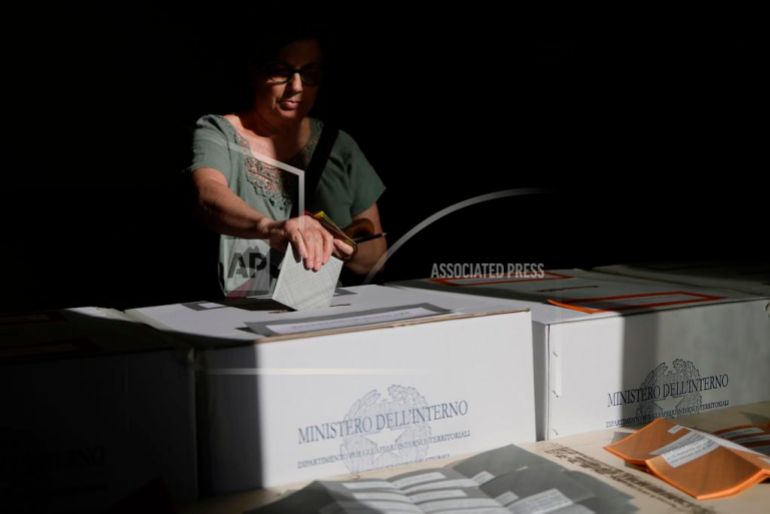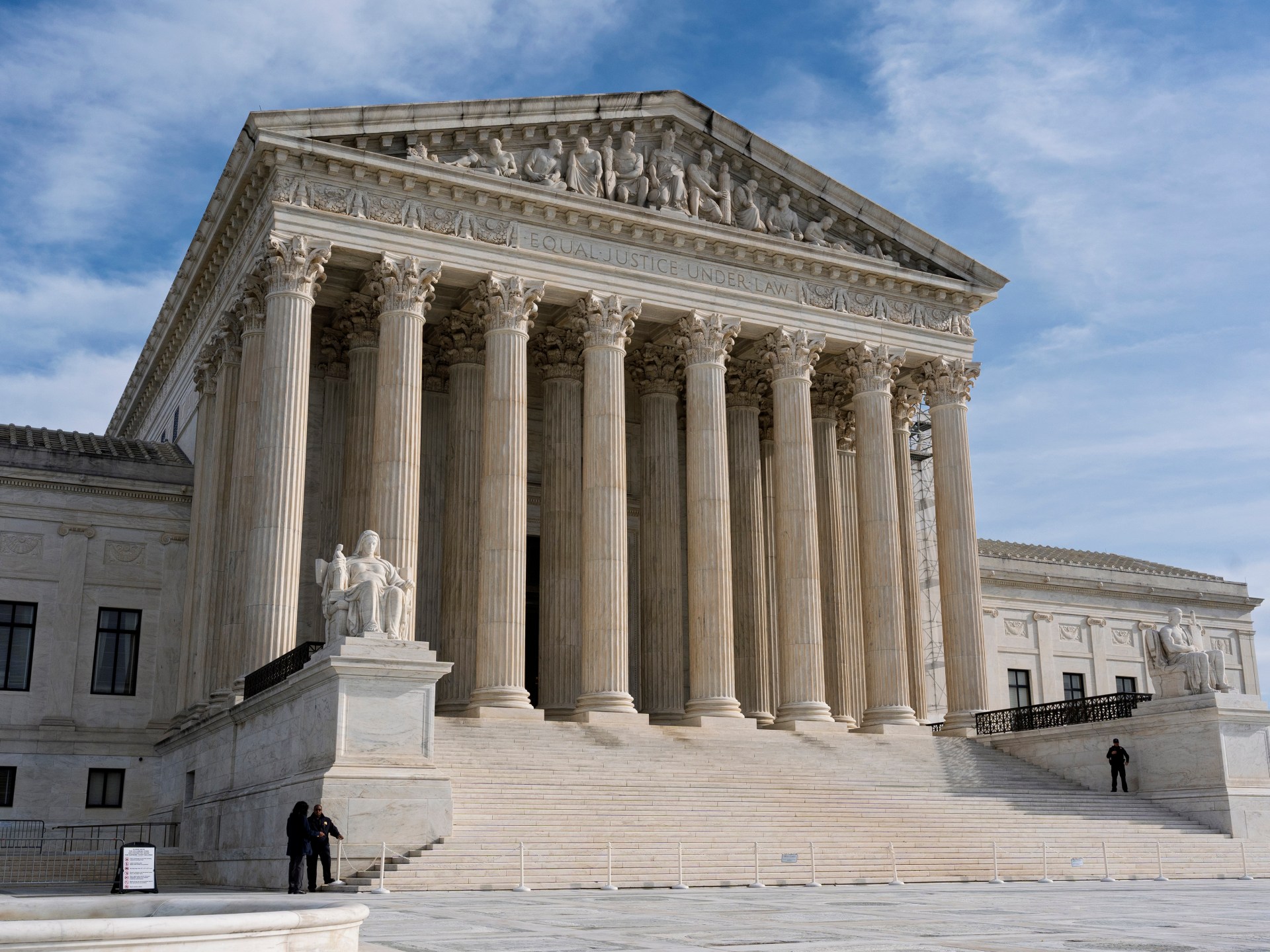Italy’s citizenship referendum: What’s at stake? | Civil Rights News
The fate of millions of immigrants is at stake as Italians vote in a two-day referendum that proposes to speed up the process of acquiring citizenship for foreigners who legally entered the country.
The referendum also seeks to roll back labour reforms to provide enhanced job protections.
Polling stations opened on Sunday at 7am local time (05:00 GMT), with results expected after polls close on Monday at 3pm (13:00 GMT).
The measures – backed by opposition parties, labour unions and social activists – are aimed at revising citizenship laws to help second-generation Italians born in the country, to non-European Union parents, integrate more easily.
However, the vote may fail to generate sufficient turnout to be deemed valid – a turnout of more than 50 percent is required for a referendum to be legally binding.
Ahead of this weekend’s vote, the citizenship issue has garnered plenty of attention in a nation where concerns over the scale of immigration helped propel right-wing Prime Minister Giorgia Meloni’s anti-migration coalition to power in late 2022. Immigration has emerged as a key issue, particularly in Western Europe as well as the United States under President Donald Trump.
So, what does the referendum propose, and what does it mean for immigrants whose lives are in limbo due to the slow process of naturalisation in the EU member nation?
What are the Italian citizenship requirements, and how many immigrants are waiting for citizenship?
The question on the ballot paper asks Italians if they back reducing the period of residence required to apply for Italian citizenship, by naturalisation, from 10 years to five.
The change proposed by the referendum would allow nearly 1.5 million foreigners to obtain citizenship immediately, according to an estimate by Idos, an Italian research centre. That would include nearly 300,000 minors, who would obtain citizenship if their parents did.
About half of Italy’s 5.4 million foreign residents could be eligible to apply for citizenship if the vote is passed.
![A woman casts her ballots on referendums on citizenship and job protections, at a polling station in Rome, Sunday, June 8, 2025. [Cecilia Fabiano/LaPresse via AP]](https://www.occasionaldigest.com/wp-content/uploads/2025/06/AP-2-1749381738.jpg)
The vote comes as Meloni has tightened citizenship laws, making it hard for resident immigrants to obtain nationality.
Currently, immigrants from countries outside the EU can apply for citizenship only after 10 years of uninterrupted residency in Italy.
What is more, the children of lawful immigrants can apply for passports only once they have turned 18 and if they have continuously lived in the country since birth.
On the other hand, generous bloodline laws allowed people of Italian descent, even if remote, to obtain citizenship, helping maintain a link with the diaspora.
Between 2016 and 2023, for instance, Italy granted citizenship to more than 98,300 people, mostly living in Latin America, based on their claims of Italian ancestry.
With Italy’s birthrate in sharp decline, economists say the country needs to attract more foreigners to boost its anaemic economy.
Francesco Galietti, from political risk firm Policy Sonar, told the Reuters news agency that keeping such rules tight was “an identity issue” for Meloni, but she was also being pushed by businesses to open up the borders of an ageing country to foreign workers.
“On the one hand, there is the cultural identity rhetoric, but on the other, there are potential problems paying pensions and an economy that relies on manufacturing, which needs workers,” Galietti said.
For context, Italy’s constitution allows citizens to repeal laws through referendums, part of the system of checks and balances devised after Benito Mussolini’s fascist rule in the 1940s.
What are the other proposals in the referendum?
The referendum seeks to make it harder to fire workers and increase compensation for those laid off by small businesses, reversing a previous law passed by a centre-left government a decade ago.
One of the questions on the ballot also addresses the urgent issue of security at work, restoring joint liability to both contractors and subcontractors for workplace injuries.
Campaigners gathered more than 4.5 million signatures, according to the Italian General Confederation of Labour (CGIL) union, far more than needed to trigger the referendum, which will comprise five questions – four on the labour market and one on citizenship.
“We want to reverse a culture that has prioritised the interests of business over those of workers,” CGIL general secretary Maurizio Landini told the AFP news agency.
![A dog on a leash waits as its owner votes in a booth for referendums on citizenship and job protections, at a polling station in Milan, Italy, Sunday, June 8, 2025. [Claudio Furlan/LaPresse via AP]](https://www.occasionaldigest.com/wp-content/uploads/2025/06/AP-3-1749381760.jpg)
Who backed the referendum and why?
The referendum was promoted by a coalition of relatively small political parties – More Europe, Possibile, the Italian Socialist Party, the Italian Radicals and the Communist Refoundation Party – and numerous civil society associations.
It is also being backed by the centre-left Democratic Party, which is jockeying for Italian citizenship laws to be more aligned with EU-wide standards.
Research shows that access to citizenship has positive causal effects.
Immigrants who naturalise experience lower unemployment rates, earn higher incomes and are less likely to be overqualified for their jobs.
By contrast, protracted waiting periods for naturalisation delay or dampen these effects.
These findings support the claim that naturalisation is not only a reward, but also an important catalyst for integration.
The majority of Italians think that citizenship accelerates the integration process as well.
The last Eurobarometer on the integration of immigrants reports that 87 percent of Italians believe that acquiring citizenship is an important factor for the successful integration of immigrants in Italy.
Even if it passes, however, the reform will not affect the law many consider deeply unfair – that children born in Italy to foreign parents cannot request nationality until they reach 18.
Does PM Meloni back the new citizenship rules?
Opposition left-wing and centrist parties, civil society groups and a leading trade union have latched on to the issues of labour rights and Italy’s demographic woes as a way of challenging Meloni’s right-wing coalition government.
Meloni has said she would show up at the polls but not cast a ballot – a move widely criticised by the left as antidemocratic, since it will not help reach the necessary threshold to make the vote valid.
Activists and opposition parties have denounced the lack of public debate on the measures, accusing the governing centre-right coalition of trying to dampen interest in sensitive issues that directly affect immigrants and workers.
A Demopolis institute poll last month estimated turnout would be in the range of 31-39 percent among Italy’s roughly 50 million electors, well short of the required threshold.
Leaders of two of the governing coalition’s right-wing parties, Antonio Tajani of Forza Italia and Matteo Salvini of the League, have opposed the vote.
The referendum is “dangerous” and would extend access to citizenship “indiscriminately”, Salvini, Italy’s deputy prime minister, said in May.
How significant is the referendum?
Supporters say this reform would bring Italy’s citizenship law in line with many other European countries, promoting greater social integration for long-term residents.
It would also allow faster access to civil and political rights, such as the right to vote, eligibility for public employment and freedom of movement within the EU.
Italy is also confronting one of Europe’s most acute demographic crises.
Its population is ageing rapidly, with about a quarter of Italians aged above 65 years and just 12 percent aged 14 or younger. The referendum could ease some of these pressures.






